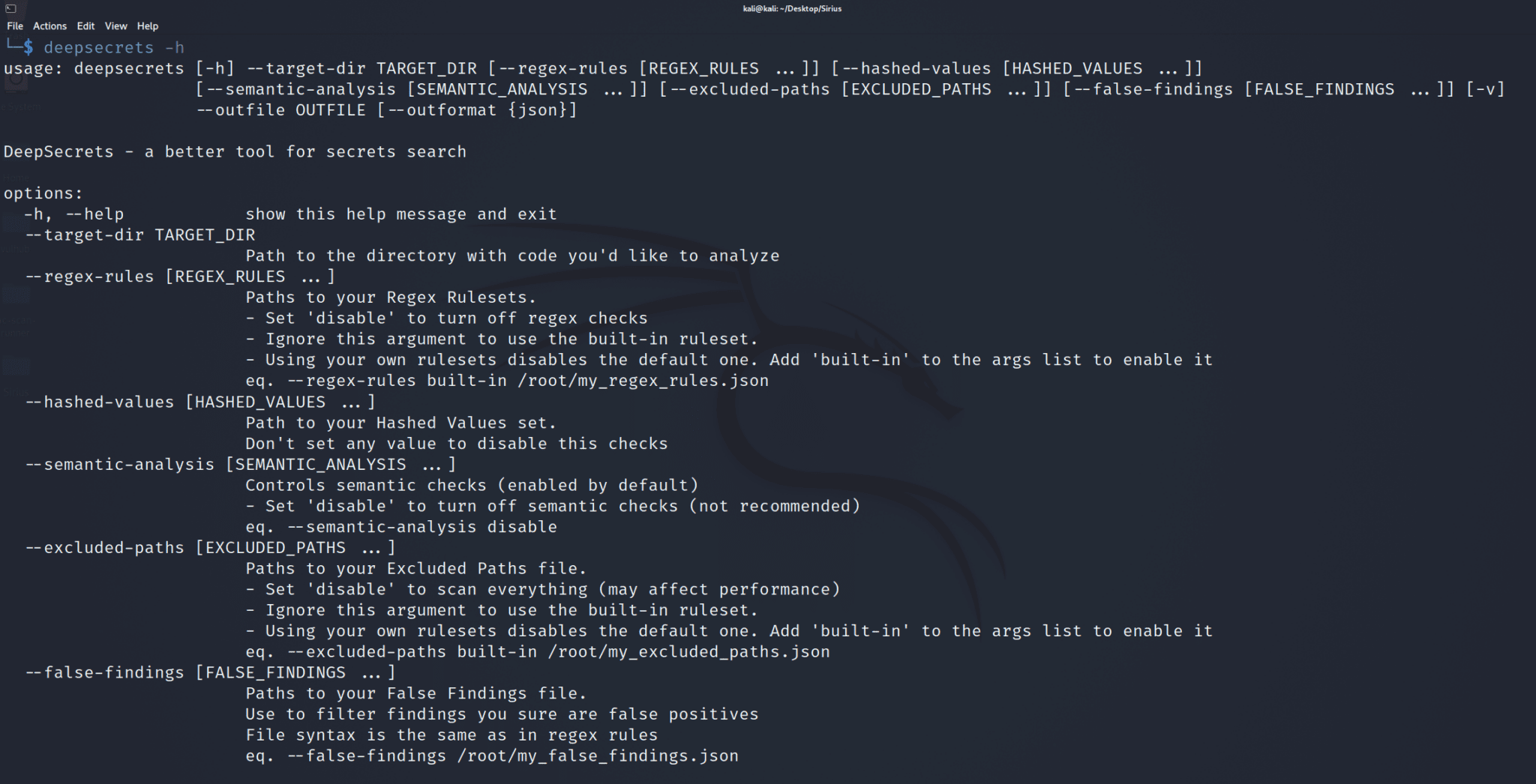
DeepSecrets – a better tool for secret scanning
Yet another tool – why?
Existing tools don’t really “understand” code. Instead, they mostly parse texts.
DeepSecrets expands classic regex-search approaches with semantic analysis, dangerous variable detection, and more efficient usage of entropy analysis. Code understanding supports 500+ languages and formats and is achieved by lexing and parsing – techniques commonly used in SAST tools.
DeepSecrets also introduces a new way to find secrets: just use hashed values of your known secrets and get them found plain in your code.
Under the hood
There are several core concepts:
- File
- Tokenizer
- Token
- Engine
- Finding
- ScanMode
File
Just a pythonic representation of a file with all needed methods for management.
Tokenizer
A component able to break the content of a file into pieces – Tokens – by its logic. There are four types of tokenizers available:
FullContentTokenizer: treats all content as a single token. Useful for regex-based search.PerWordTokenizer: breaks given content by words and line breaks.LexerTokenizer: uses language-specific smarts to break code into semantically correct pieces with additional context for each token.
Token
A string with additional information about its semantic role, corresponding file, and location inside it.
Engine
A component performing secrets search for a single token by its own logic. Returns a set of Findings. There are three engines available:
RegexEngine: checks tokens’ values through a special rulesetSemanticEngine: checks tokens produced by the LexerTokenizer using additional context – variable names and valuesHashedSecretEngine: checks tokens’ values by hashing them and trying to find coinciding hashes inside a special ruleset
Finding
This is a data structure representing a problem detected inside code. Features information about the precise location inside a file and a rule that found it.
ScanMode
This component is responsible for the scan process.
- Defines the scope of analysis for a given work directory respecting exceptions
- Allows declaring a
PerFileAnalyzer– the method called against each file, returning a list of findings. The primary usage is to initialize necessary engines, tokenizers, and rulesets. - Runs the scan: a multiprocessing pool analyzes every file in parallel.
- Prepares results for output and outputs them.
The current implementation has a CliScanMode built by the user-provided config through the cli args.

Changelog v1.1.2
- Fix extreme false positive rate in specific swift constructions
Install & Use
Copyright (c) 2023 Avito